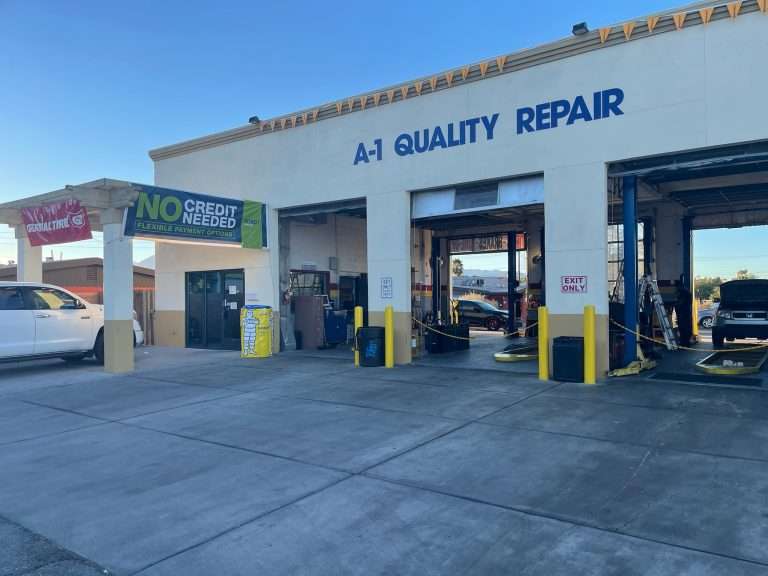Car Tune Up in Las Vegas
Engine Service
Over time, the components of your engine begin to wear down which starts to drain your vehicles fuel efficiency and power. To keep your car performing at its best, it is crucial that you follow the maintenance schedule recommended by your vehicles manufacturer.
Is it time for a car tune up?
Here are some signs to watch for:
- Poor Gas Mileage
- Reduced Power and Handling
- Engine Runs Rough Or Stalls When Stopped
- Engine Makes Knocking Sound While Accelerating
- Engine Sputters After The Ignition Shuts Off
- Check Engine Light Comes On
What Is A Car Tune Up?
A car tune up is a comprehensive maintenance service designed to ensure that a vehicle is running efficiently and reliably. While the specifics of a tune-up can vary depending on the make and model of the vehicle, as well as its age and maintenance history, a typical tune-up often includes several key components. Here are the common elements of a car tune up:
1. Spark Plug Replacement
Spark plugs play a crucial role in the ignition system, creating the spark needed to ignite the air-fuel mixture in the engine cylinders. During a car tune up, old or worn-out spark plugs are often replaced to ensure optimal combustion and engine performance.
Air Filter Replacement
The air filter prevents dirt, debris, and contaminants from entering the engine. A clogged or dirty air filter can restrict airflow, leading to reduced fuel efficiency and engine performance. Replacing the air filter is a standard part of a tune-up.
Fuel Filter Replacement
The fuel filter traps impurities in the fuel before it reaches the engine. Over time, the fuel filter can become clogged, affecting fuel flow and engine efficiency. Replacing the fuel filter is part of maintaining proper fuel system function.
Positive Crankcase Ventilation Valve Inspection
The PCV valve helps regulate the flow of gases from the engine’s crankcase. A malfunctioning PCV valve can lead to increased emissions and reduced fuel efficiency. During a tune-up, the PCV valve is inspected, and if necessary, replaced.
Exhaust System Inspection
The exhaust system is checked for leaks, damage, or any components that may need attention. A well-functioning exhaust system is crucial for emissions control and overall vehicle performance.
Ignition System Inspection
The entire ignition system, including the distributor, ignition wires, and ignition coils, is inspected to ensure proper function. Any worn or damaged components are addressed to maintain reliable ignition.
Timing Belt Inspection
If the vehicle is equipped with a timing belt, its condition is checked. A worn or damaged timing belt can lead to serious engine problems. If necessary, the timing belt is replaced according to the manufacturer’s recommended schedule.
Battery Inspection
The battery is inspected for signs of corrosion, loose connections, or other issues. The terminals may be cleaned, and the battery’s overall condition is assessed. In some cases, a tune-up may include testing the battery’s voltage.
Fluid Checks and Top-Offs
Fluid levels, including engine oil, transmission fluid, brake fluid, power steering fluid, and coolant, are checked and topped off as needed. This helps ensure that all vital fluids are at the appropriate levels for optimal vehicle performance.
Throttle Body and Fuel Injector Cleaning
Over time, carbon deposits can accumulate in the throttle body and on fuel injectors, affecting engine performance. Cleaning these components can restore proper fuel delivery and efficiency.
It’s important to note that the specific components included in a tune-up can vary based on the vehicle’s make, model, and maintenance requirements. Following the manufacturer’s recommended maintenance schedule is key to keeping a vehicle in optimal condition. Additionally, modern vehicles with electronic ignition systems and advanced engine control modules may not require traditional tune-ups as frequently as older vehicles with carbureted engines.
Car Tune Up Frequently Asked Questions
While modern vehicles with electronic ignition systems and advanced engine control modules may not require traditional tune-ups as frequently as older models, there are still signs that your car may benefit from some form of maintenance. These include:
- Reduced Fuel Efficiency
- Poor Acceleration
- Misfires
- Check Engine Light Is On
- High Mileage
- Strange Noises
The frequency of tune-ups for modern vehicles has changed over the years due to advancements in automotive technology. Older vehicles with carbureted engines required more frequent tune-ups, often every 10,000 to 12,000 miles or annually. However, many modern vehicles with electronic ignition systems, fuel injection, and computer-controlled engines have longer intervals between tune-ups. The average interval for a car tune up on many modern vehicles is often around 30,000 to 100,000 miles, depending on the manufacturer’s recommendations.
The terms “car tune up” and “full service” are sometimes used interchangeably, but they can have different meanings depending on the context and the automotive service provider. Generally, the distinctions between a tune-up and a full service can vary, and the specific tasks performed may differ between different service centers.
A traditional car tune up used to involve a set of specific maintenance tasks aimed at optimizing the performance of the engine. Meanwhile, a “full service” typically implies a more comprehensive range of maintenance tasks beyond what might be included in a traditional tune-up.
The recommended interval for changing spark plugs can vary depending on factors such as the type of spark plugs, the vehicle’s make and model, and the specific driving conditions. In general, traditional copper spark plugs may need to be replaced more frequently than platinum or iridium plugs.
Copper spark plugs are typically less expensive but may have a shorter lifespan. They are often recommended to be replaced every 20,000 to 30,000 miles.
Platinum spark plugs have a longer lifespan and are designed to last around 60,000 miles or more. Some manufacturers suggest replacing them every 60,000 to 100,000 miles.
Iridium spark plugs are known for their durability and longevity. They can last up to 100,000 miles or more. Some manufacturers may recommend replacing them between 60,000 and 120,000 miles.
The duration of a car tune up can vary based on several factors, including the specific tasks involved, the type of vehicle, and the condition of the components being serviced.
As a rough estimate, a basic tune-up focusing on tasks like spark plug replacement, ignition system inspection, and air filter replacement may take around 1 to 3 hours. However, this is a general guideline, and the actual time can vary based on the factors mentioned above.
Feel free to contact us for a more detailed estimate for the time required for your services!
Neglecting regular tune-ups for your car can lead to a variety of issues, potentially affecting its performance, fuel efficiency, and overall reliability. To avoid issues, it’s important to follow the manufacturer’s recommended maintenance schedule outlined in your vehicle’s owner’s manual.
Contact Us For A Car Tune Up
in Las Vegas
At A1 Quality Repair in Las Vegas, we understand the importance of maintaining your vehicle’s optimal performance through regular tune-ups. Our skilled technicians specialize in comprehensive car maintenance services, ensuring that your engine operates efficiently, your fuel economy is maximized, and your vehicle performs at its best.
Let us keep your vehicle running smoothly with expert car tune up services at A1 Quality Repair. Your satisfaction and the optimal performance of your car are our priorities.

